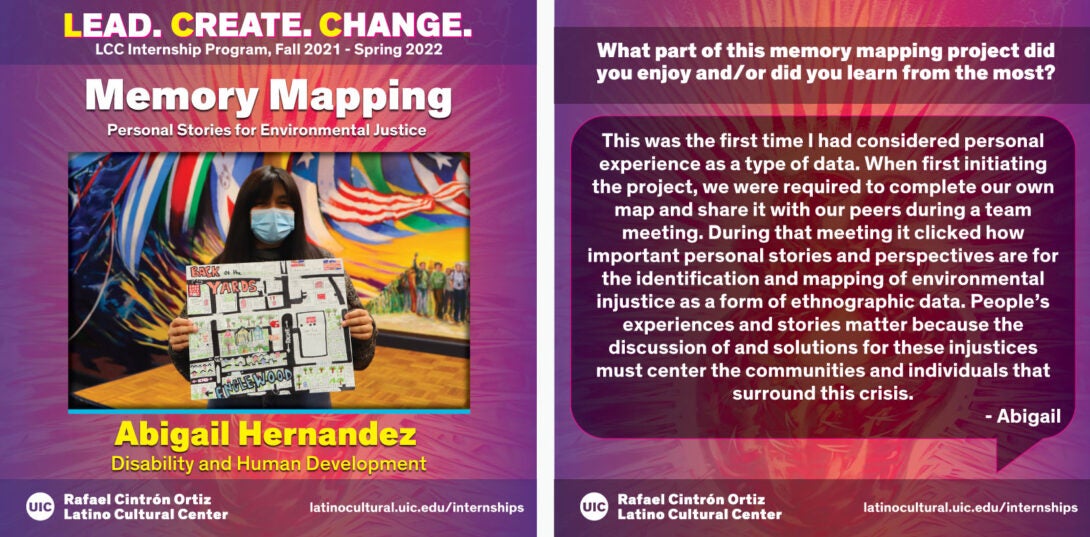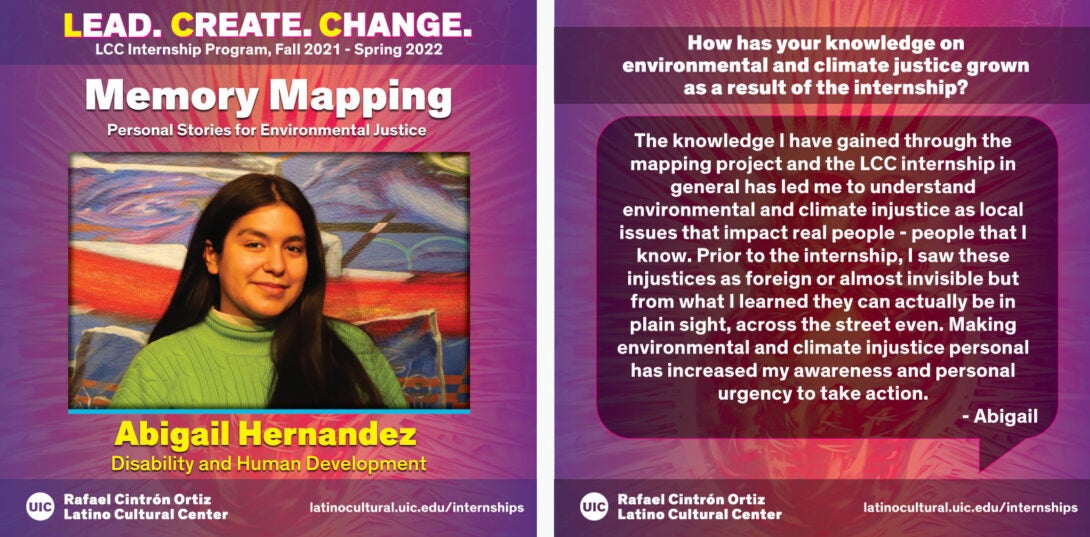Abigail Hernandez
What part of this memory mapping project did you enjoy and/or did you learn from the most?

What part of this memory mapping project did you enjoy and/or did you learn from the most?
This was the first time I had considered personal experience as a type of data. When first initiating the project, we were required to complete our own map and share it with our peers during a team meeting. During that meeting it clicked how important personal stories and perspectives are for the identification and mapping of environmental injustice as a form of ethnographic data. People’s experiences and stories matter because the discussion of and solutions for these injustices must center the communities and individuals that surround this crisis.
How has your knowledge on environmental and climate justice grown as a result of the internship?

How has your knowledge on environmental and climate justice grown as a result of the internship?
The knowledge I have gained through the mapping project and the LCC internship in general has led me to understand environmental and climate injustice as local issues that impact real people – people that I know. Prior to the internship, I saw these injustices as foreign or almost invisible but from what I learned they can actually be in plain sight, across the street even. Making environmental and climate injustice personal has increased my awareness and personal urgency to take action.